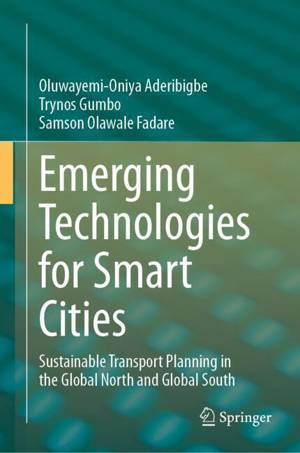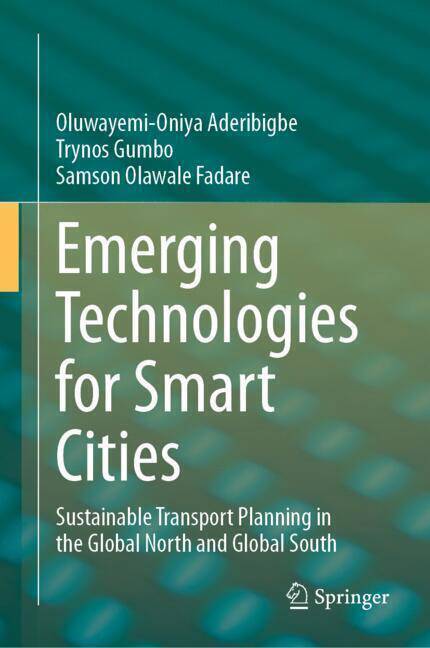
- Retrait gratuit dans votre magasin Club
- 7.000.000 titres dans notre catalogue
- Payer en toute sécurité
- Toujours un magasin près de chez vous
- Retrait gratuit dans votre magasin Club
- 7.000.0000 titres dans notre catalogue
- Payer en toute sécurité
- Toujours un magasin près de chez vous
Emerging Technologies for Smart Cities
Sustainable Transport Planning in the Global North and Global South
Oluwayemi-Oniya Aderibigbe, Trynos Gumbo, Samson Olawale FadareDescription
This book examines the use of smart city-associated technologies to enhance sustainable transportation planning in cities of both the global north and south, focusing specifically on sustainable transportation. The authors of the book examine technologies and tools such as UAVs, GIS, cutting-edge information and communication technologies, machine learning and big data to assess their potential for reducing traffic, redirecting traffic to assigned routes, monitoring traffic growth and development in our urban centres, with the ultimate aim of reducing congestion/commuting time, accidents, and pollution to promote climate action and a just transition.
The book offers a comparative study of transport situation and planning in the developed and developing countries, focusing on the United States of America, Germany and Singapore in the Global North on one hand and South Africa, Nigeria and India from the Global South on the other. As more and more of the world's population lives in urban centers, proactively monitoring and managing car traffic is essential. The book will be of interest to academics and researchers in the built environment (architecture, urban and regional planning, construction management, quantity surveying, geography), engineering, environmental sciences, social sciences, public policy, design in both the developed and developing countries.
Spécifications
Parties prenantes
- Auteur(s) :
- Editeur:
Contenu
- Nombre de pages :
- 240
- Langue:
- Anglais
Caractéristiques
- EAN:
- 9783031669422
- Date de parution :
- 14-08-24
- Format:
- Livre relié
- Format numérique:
- Genaaid
- Dimensions :
- 155 mm x 235 mm
- Poids :
- 549 g

Les avis
Nous publions uniquement les avis qui respectent les conditions requises. Consultez nos conditions pour les avis.






